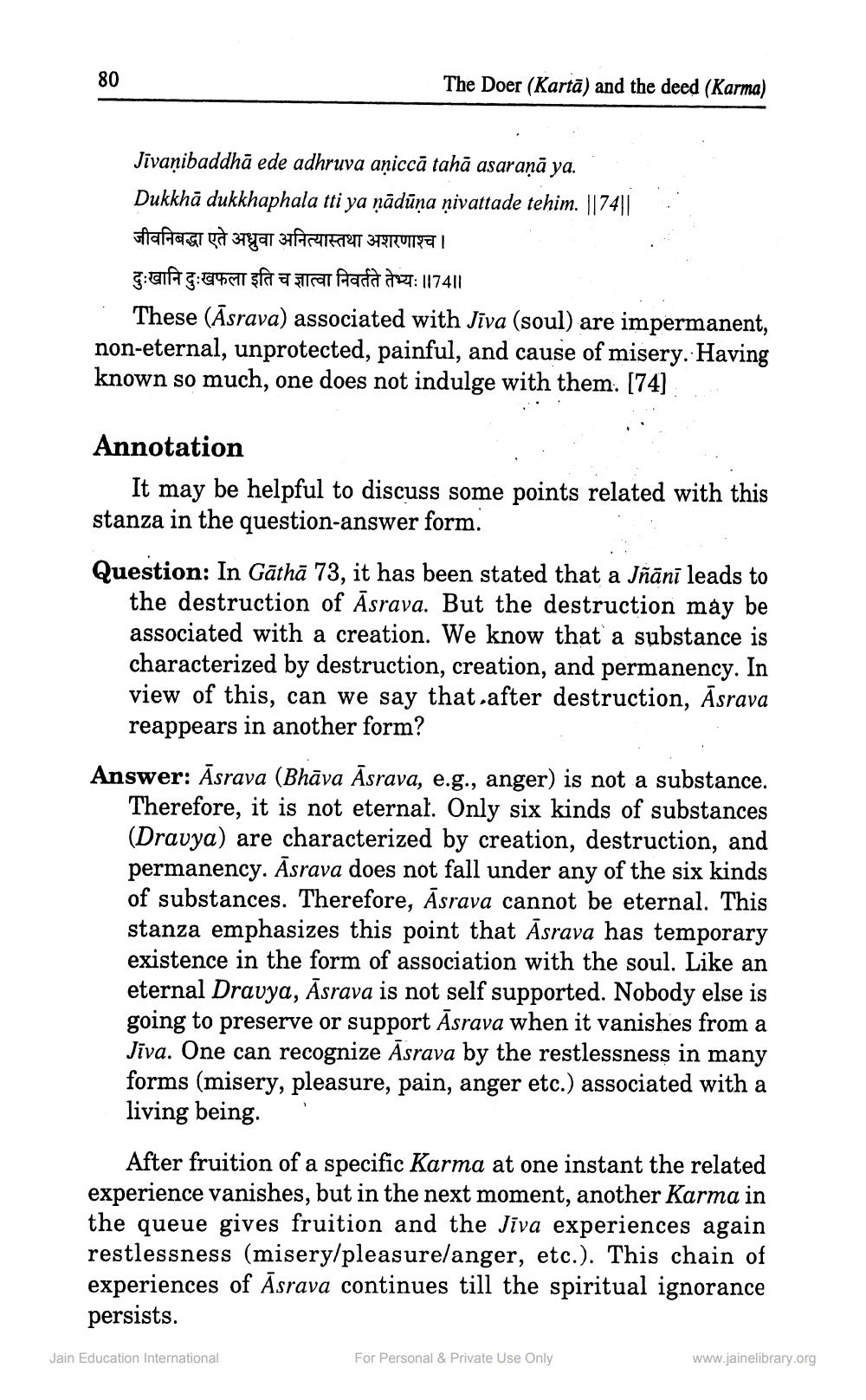________________
80
The Doer (Karta) and the deed (Karma)
Jivaṇibaddha ede adhruva aniccā tahā asaraṇā ya. Dukkha dukkhaphala tti ya ṇādūņa nivattade tehim. ||74||
जीवनिबद्धा एते अध्रुवा अनित्यास्तथा अशरणाश्च ।
दुःखानि दुःखफला इति च ज्ञात्वा निवर्तते तेभ्यः ।।74।।
These (Asrava) associated with Jiva (soul) are impermanent, non-eternal, unprotected, painful, and cause of misery. Having known so much, one does not indulge with them. [74]
Annotation
It may be helpful to discuss some points related with this stanza in the question-answer form.
Question: In Gāthā 73, it has been stated that a Jñānī leads to the destruction of Asrava. But the destruction may be associated with a creation. We know that a substance is characterized by destruction, creation, and permanency. In view of this, can we say that after destruction, Asrava reappears in another form?
Answer: Asrava (Bhāva Asrava, e.g., anger) is not a substance. Therefore, it is not eternal. Only six kinds of substances (Dravya) are characterized by creation, destruction, and permanency. Asrava does not fall under any of the six kinds of substances. Therefore, Asrava cannot be eternal. This stanza emphasizes this point that Asrava has temporary existence in the form of association with the soul. Like an eternal Dravya, Asrava is not self supported. Nobody else is going to preserve or support Asrava when it vanishes from a Jīva. One can recognize Asrava by the restlessness in many forms (misery, pleasure, pain, anger etc.) associated with a living being.
After fruition of a specific Karma at one instant the related experience vanishes, but in the next moment, another Karma in the queue gives fruition and the Jiva experiences again restlessness (misery/pleasure/anger, etc.). This chain of experiences of Asrava continues till the spiritual ignorance persists.
Jain Education International
For Personal & Private Use Only
www.jainelibrary.org




